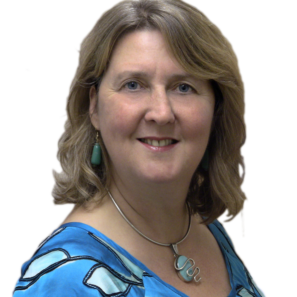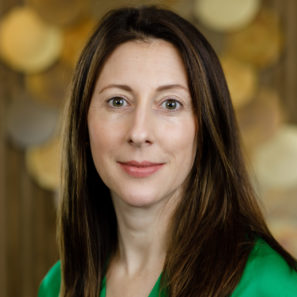Tackling digital and financial exclusion to build back better
For digitally excluded people, lockdown has made managing money even harder. A year on, Mastercard UK and Ireland Divisional President, Kelly Devine, and our Group CEO, Helen Milner write about how our coalition has ensured nobody is left in the dark.
The Covid-19 pandemic is having a devastating impact on millions of people’s finances. In fact, a staggering 19.4 million people do not feel prepared for the economic fallout that looms before us (YouGov, 2020). With unemployment rising, and physical banking and consumer services less accessible due to the restrictions, it’s more important than ever that everyone is able to get online to access essential financial services and money support.
When – according to Lloyds Bank’s Consumer Digital Index – 9 million people cannot use the internet without help, and 11.7 million people lack the essential digital skills for everyday life – the risks to people’s livelihoods and to national goals of levelling up are all too stark. We must do whatever it takes to stop this double inequality of both digital and financial exclusion, acting now to fix the digital divide before the gap widens further, if we are to build a truly inclusive Britain.
That’s why Good Things Foundation, the UK’s leading digital inclusion charity, and Mastercard – along with Clean Slate, Joseph Rowntree Foundation, and the APLE Collective – formed an emergency coalition in June last year to raise awareness and pilot new ways to support those facing both digital and financial barriers. Last year’s campaign to ensure we leave Nobody in the Dark about the support they can get around money and digital skills reached over 1 million people.
The rise of ‘fintech’ and use of digital technology has brought untold benefits to economic growth, but these benefits have not been shared by everyone. Harnessing digital technology and innovation is the key to tackling digital and financial exclusion, and building a better, more inclusive UK.
But this promise won’t be realised without some essential groundwork: building the trust of consumers and citizens in online financial services and tools; ensuring those services and tools are inclusive by design, as well as safe and secure; providing additional protections for consumers who may be vulnerable or in vulnerable situations – and recognising that digital access and skills are an important dimension of consumer vulnerability in a digital marketplace. And, above all, we need to invest sustained effort into reaching, engaging and supporting those most at risk of digital and financial exclusion, so they can develop the skills and confidence to use online financial services safely.
As part of Nobody in the Dark, we also piloted a new approach: embedding digital inclusion into provision of person-centred money guidance. We combined the financial inclusion expertise of Clean Slate – which also runs QuidsIn! (the magazine and website) – with the digital inclusion expertise of Good Things Foundation to create a new service offer. We partnered with eight community organisations – members of the Online Centres Network, supported by Good Things Foundation. Through this pilot, we supported over 540 people to improve their financial situation and also build their digital and financial confidence. Over 255 people also benefited through a ‘self-serve’ route linked to the national campaign.
And we’re proud that Nobody in the Dark has enabled people to make positive changes in their behaviour, big and small, through building trust, and building personal confidence.
Take mum of three, Lydia, in Newcastle, who, after completing a financial health check, started putting aside £1 a day, and encouraged her children to save pennies from their pocket money in a piggybank. Together, they learned a way to become better off; by harnessing digital skills, taking control of their situation and boosting confidence and wellbeing for the whole family.
There are hundreds of thousands of people who are wary of using digital financial services, put off by the possibility of online fraud and scams; many are already online in other ways. These are sound concerns and we should never force people to adopt digital. But this doesn’t detract from the critical tasks of finding sustainable solutions for cash access, alongside helping people to develop the trust, digital skills, access or confidence to use both cash and digital payments. This is something we must address, or we risk these consumers being left further behind as how we pay for goods and services continues to evolve.
That’s why one of the core themes of our campaign has been to build trust and confidence in digital finance.
At our recent roundtable, attended by the Economic Secretary to the Treasury, John Glen MP, participants highlighted how a lack of trust and confidence in using digital services stops people from getting online. This is a serious issue which must be a core focus within Government plans for financial inclusion going forward. More than this, it is a fundamental barrier to accessing the wider benefits of being online – like keeping in touch with friends and family, managing health appointments and prescriptions, or being able to easily plan and manage your own finances. That’s why Good Things Foundation and Mastercard have been calling on the Government to support a Great Digital Catch-up in communities to fix the digital divide.
Investing to fix the digital divide – which the Government have also recently recognised in their ten tech priorities – also offers potential solutions for some who are currently ‘unbanked’ to help them build more sustainable finances. For example, through recent innovations in use of pre-paid cards and open banking solutions, which don’t require a traditional bank account. If these are to play a role in reducing inequalities and financial exclusion, then they need to be inclusive by design – designed to be used by people who face additional barriers to accessing traditional services.
We believe our Nobody in the Dark coalition provides a fantastic blueprint for future collaborations, connecting Government, the financial industry, third sector, and local communities. Together, Mastercard, Good Things Foundation and Clean Slate are committed to developing this agenda for action, to help tackle digital and financial exclusion and to ensure an inclusive economic recovery that works for everyone.
YouGov Plc (2020). Total sample size was 2,054 adults. Fieldwork was undertaken between 24th – 25th June 2020. The survey was carried out online. The figures have been weighted and are representative of all UK adults (aged 18+).

Helen Milner OBE
Group Chief Executive
Helen Milner OBE is the Group Chief Executive of Good Things Foundation. Founded as a staff-led mutual charity in the UK in 2011, Helen led the establishment of a subsidiary charity, opening an office in Sydney in August 2017, and running the Be Connected Network for the Australian Government.
Helen has over 30 years experience of working in and leading organisations creating and delivering education over and about the internet. She was awarded an OBE for services to digital inclusion in the 2015 Queen’s Birthday Honours List.

Kelly Devine
Divisional President, UK & Ireland, Mastercard
Kelly Devine is the Divisional President, UK & Ireland at Mastercard. In her role Kelly is responsible for the strategy, direction and overall success of all aspects of Mastercard’s business across the UK and Republic of Ireland.
